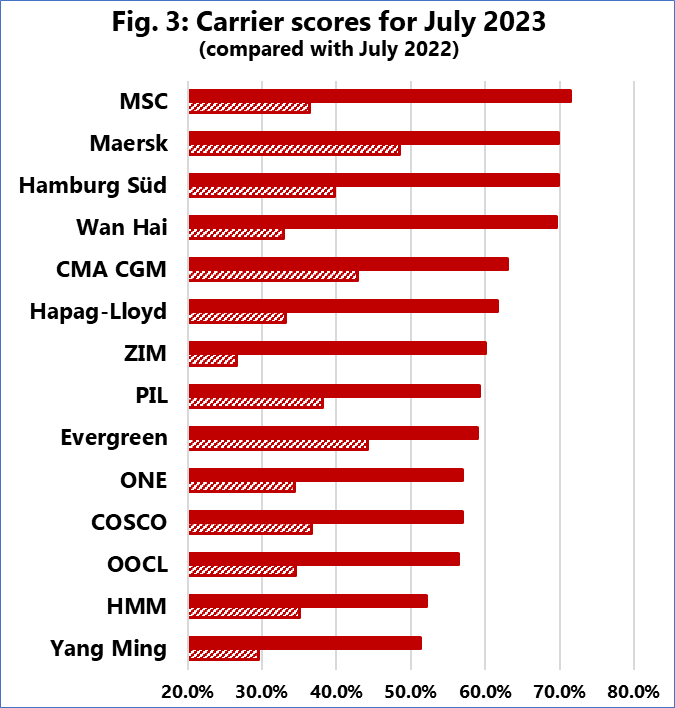Global schedule reliability, which fell for the first time in June, has remained at 63.4 per cent in July 2023, according to Sea-Intelligence.
Sea-Intelligence has released issue 144 of the Global Liner Performance (GLP) report, which includes schedule dependability numbers through July 2023.
As the research is thorough, analysing schedule reliability across 34 separate trade routes and 60+ carriers, the Sea-Intelligence press release covers the worldwide highlights from the GLP report.

Schedule reliability remained unchanged month-over-month (MoM) in July 2023 at 64.2 per cent, maintaining the slightly lower level than the peak reached in May 2023.
READ: Top carriers set sail towards improved schedule reliability
On a year-over-year (YoY) level however, schedule reliability in July 2023 is still 23.8 percentage points higher.
The average delay for LATE vessel arrivals on the other hand deteriorated by 0.21 days MoM to 4.59 days, according to the report.
This is the first substantial increase of the year, and after two months of stability at 4.37 days. Despite the MoM increase, average delay is still -1.85 days better off YoY.

With 71.5 per cent schedule reliability in July 2023, MSC was the most reliable top-14 carrier, followed closely by Maersk and Hamburg Süd with 69.8 per cent.
MSC was the only carrier with schedule reliability over 70 per cent, whereas there were six carriers (including Maersk and Hamburg Süd) with schedule reliability of 60 per cent – 70 per cent.
All seven remaining carriers had schedule reliability of 50 per cent – 60 per cent, with Yang Ming the least reliable carrier with 51.3 per cent.
Nine of the top-14 carriers recorded a MoM increase in July 2023, with Wan Hai recording the largest increase of 9.7 percentage points.
On a YoY level however, all 14 carriers recorded double-digit improvements, with Wan Hai recording the largest improvement of 36.6 percentage points.








